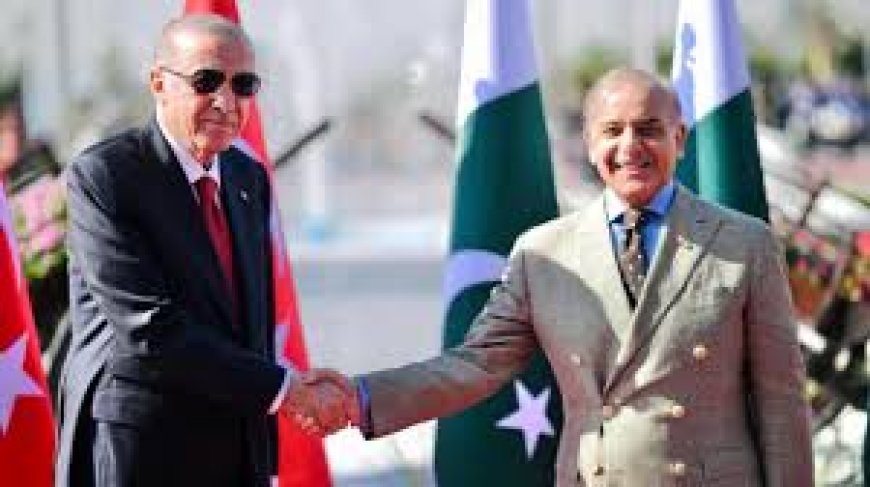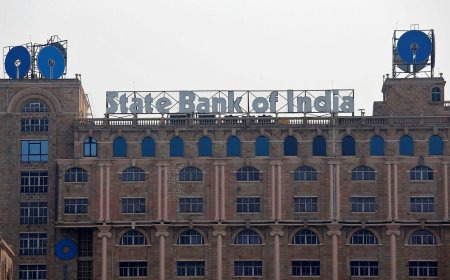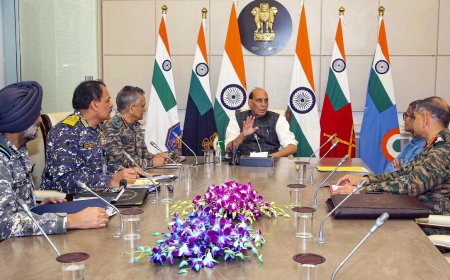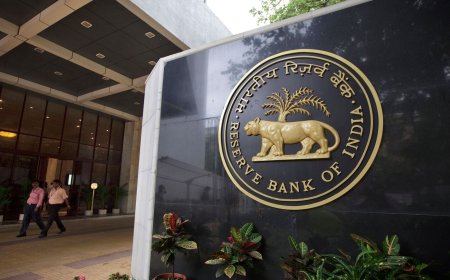Why Pakistan PM's letter to Turkish President exposes Islamabad's Achilles' heel
Prime Minister Shehbaz Sharif’s recent letter to Turkey’s President Erdogan exposes Pakistan’s strategic dependence and fragile geopolitical standing.

Diplomatic Message with Underlying Signals
Pakistan Prime Minister Shehbaz Sharif’s recent letter to Turkish President Recep Tayyip Erdoğan—thanking him for his continued support on the Kashmir issue—appears, on the surface, to be a symbolic act of gratitude. However, analysts believe this diplomatic outreach masks deeper vulnerabilities within Islamabad’s foreign policy framework, exposing what many now term as its “Achilles’ heel”: strategic overdependence on sympathetic nations amid growing global isolation.
According to the letter, which was publicly acknowledged by both sides, PM Sharif praised Turkey’s consistent support for “the just resolution of the Jammu and Kashmir dispute in accordance with UN resolutions.” The gesture came ahead of the upcoming United Nations General Assembly session, where Pakistan traditionally raises the Kashmir issue.
Strategic Overdependence: A Dangerous Diplomatic Bet
Analysts argue that while expressing gratitude may be customary, such correspondence in the current geopolitical context underscores Pakistan’s limited diplomatic leverage.
“Turkey has been one of the few Muslim-majority countries consistently backing Pakistan on Kashmir, but reliance on symbolic gestures is no substitute for broad-based diplomatic engagement,” says Dr. Ayesha Jalal, a South Asian political historian. “The letter reveals more about Pakistan’s desperation than its diplomatic strength.”
India’s increasingly influential global profile—particularly among Western powers and Gulf nations—has reduced the efficacy of Pakistan’s Kashmir narrative internationally. Even key members of the Organisation of Islamic Cooperation (OIC) have taken a more muted stance on the issue in recent years.
The Economic Undercurrent: IMF Pressure and External Dependencies
Another critical layer to this episode is Pakistan’s ongoing economic crisis. The nation narrowly avoided default in 2023 through a last-minute deal with the International Monetary Fund (IMF). Still, its economic fundamentals remain fragile. Letters like the one to Erdogan serve not only political aims but also economic ones—shoring up support among traditional allies who have previously extended financial help.
“Pakistan’s foreign policy is increasingly shaped by its economic compulsions,” remarks Zainab Haider, an Islamabad-based geopolitical risk analyst. “With the IMF watching every move, Islamabad is eager to show it still retains strategic relevance.”
Turkey, along with countries like China, Saudi Arabia, and the UAE, has occasionally stepped in to support Pakistan with direct financial aid, deferred oil payments, or currency swaps. Maintaining strong ties with Ankara is thus not only ideologically important but economically vital.
Misplaced Priorities or Calculated Risk?
Critics within Pakistan are divided on whether Sharif’s outreach represents a strategic miscalculation or a calculated necessity. With relations with India in a diplomatic freeze and ties with Afghanistan marred by border security concerns, Islamabad is facing mounting pressure to reinforce its diplomatic standing.
However, focusing intensely on Kashmir—even as it battles inflation, unemployment, and energy shortages—could be seen as a case of misplaced priorities.
“Pakistan must recalibrate its diplomacy from issue-centric advocacy to economic diplomacy,” argues Salman Masood, Editor of The Nation. “Letters alone won’t win influence. Trade, connectivity, and stability will.”
Regional Shifts: The India-Turkey Equation
A notable backdrop to this situation is the warming relations between India and Turkey. Despite Ankara’s historical support for Pakistan on Kashmir, recent years have seen attempts by New Delhi and Ankara to explore mutual interests in trade and defense cooperation. This puts Islamabad in a precarious position as its traditional allies diversify their geopolitical bets.
“Turkey may continue to back Pakistan symbolically, but its pragmatic interests are steering it closer to India,” says Professor Rajan Menon, a foreign policy expert based in New York.
This triangulation—where Pakistan sees Turkey as a consistent ally but Ankara also courts India—is emblematic of Islamabad’s diminishing diplomatic exclusivity with key partners.
Investor Outlook: Fragile Sentiment Amid Geopolitical Jitters
For foreign investors, the episode sends mixed signals. On one hand, Sharif’s active diplomacy suggests a functioning government keen on external engagement. On the other, it betrays insecurity and dependence on symbolic alliances rather than substantive, investment-driving reforms.
Pakistan’s stock market has been moderately resilient in 2025, buoyed by IMF compliance and remittances, but foreign direct investment (FDI) remains low.
“Investors are wary of countries that appear diplomatically cornered and economically constrained,” says Shazia Rehman, a South Asia strategist with a London-based asset management firm. “Pakistan must show it is capable of economic reforms beyond geopolitical grandstanding.”
A Letter That Speaks Volumes
While the letter to Turkish President Erdoğan was diplomatically courteous and perhaps strategically necessary, it simultaneously revealed Pakistan’s constrained foreign policy maneuverability. The symbolic support it seeks may no longer carry the strategic weight it once did.
Islamabad’s real test lies not in eliciting statements of solidarity, but in forging economically and diplomatically diverse partnerships, restoring regional stability, and implementing deep domestic reforms. Until then, letters like these may continue to expose more about Pakistan’s weaknesses than its strengths.
What's Your Reaction?
 Like
0
Like
0
 Dislike
0
Dislike
0
 Love
0
Love
0
 Funny
0
Funny
0
 Angry
0
Angry
0
 Sad
0
Sad
0
 Wow
0
Wow
0












































































